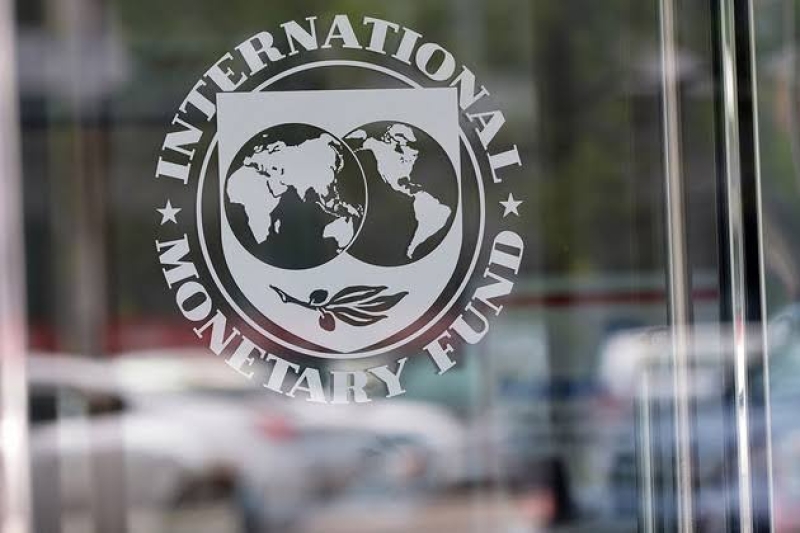- India Sees 9% Drop in Foreign Tourists as Bangladesh Visits Plunge |
- Dhaka Urges Restraint in Pakistan-Afghan War |
- Guterres Urges Action on Safe Migration Pact |
- OpenAI Raises $110B in Amazon-Led Funding |
- Puppet show enchants Children as Boi Mela comes alive on day 2 |
NBR scramble to meet IMF conditions on revenue collection
Awaits release of 2 tranches of $4.7bn loan

IMF logo
Dhaka, Apr 10 - The National Board of Revenue (NBR) finds itself in a tight spot as it scrambles to appease the International Monetary Fund (IMF) and unlock the 3rd and 4th tranches of the $4.7 billion loan program.
In a recent meeting held on April 7, the IMF asked the NBR to collect some Tk 2 lakh crore in the next months to meet the conditions for release of the last two trenches of the $4.7 billion loan.
The IMF has suspended the disbursement of the third and fourth tranches of its $4.7 billion loan package to Bangladesh, citing non-compliance with key reform conditions.
The decision follows review of the country’s macroeconomic indicators and structural performance benchmarks under the Extended Credit Facility (ECF) and Extended Fund Facility (EFF) arrangements.
The IMF raised concerns over Bangladesh’s revenue mobilisation shortfalls, sluggish progress on energy sector reforms, and limited transparency in financial reporting.
Finance Adviser Dr Salehuddin Ahmed has expressed hope that the situation can be resolved through further negotiations.
The suspension poses a potential setback for Bangladesh’s efforts to stabilize its foreign exchange reserves and control inflation.
A senior NBR official said that the IMF has asked to increase the country’s tax-GDP ratio to 7.9 percent by next June, from the current 7.4 percent.
That would require NBR to collect a massive Tk 4.55 lakh crore in revenue by the end of the current fiscal year (2024-25).
That would require nearly 20 percent growth year-on-year. Revenue growth till February, the first 8 months of the current fiscal, stood at just 1.7 percent.
As a result, about Tk 2 lakh crore revenue will be required in the last 4 months of the running fiscal.
Regarding the revenue target, the concerned NBR officials termed it as very ambitious, unrealistic and challenging.
In addition to the short-term target, the IMF has suggested increasing the tax-GDP ratio to 9 percent in the next fiscal year (2025-26). It has recommended reducing the existing tax exemption (tax expenditure) and introducing a uniform VAT rate.
The government however has maintained that VAT reform will not be implemented all at once, but in stages.
The IMF's ongoing review mission, which began on Sunday, will continue until April 17.
The outcome of this mission will determine whether Bangladesh will get two installments at once as the fourth installment, which was due in January, remains suspended.
As part of the review, the IMF team has already held meetings with the Finance Advisor, Finance Secretary, Bangladesh Bank Governor and officials of the Macroeconomic Wing of the Finance Department.
The IMF has slightly raised Bangladesh's GDP growth forecast for the current fiscal year to 4 percent, from 3.8 percent in December. However, the government has set a growth target of 5.25 percent.
The IMF has forecast growth to be 6.5 percent in the 2025-26 fiscal year, which is slightly lower than its previous forecast of 6.7 percent.
The IMF has indicated some relief over the inflation figure. According to them, average inflation this year will be 9 percent, which is lower than the previous estimate.
The government however, has set an inflation target of 8 percent, which is projected to further decline to 6.5 percent in the 2025-26 fiscal year.- UNB

